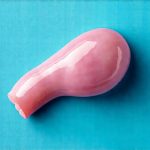Urethral hypersensitivity, often a frustrating and poorly understood condition, describes an amplified awareness – sometimes bordering on discomfort or pain – within the urethra. It’s not typically a disease in itself, but rather a symptom that can arise from various underlying causes, ranging from inflammation to nerve irritation. Many individuals experience it as a heightened sensitivity to stimuli that wouldn’t normally register as unpleasant, such as urination, sexual activity, or even simply wearing tight clothing. Because the urethra is integral to both urinary and reproductive function, recognizing potential signs of hypersensitivity is crucial for addressing any associated discomfort and seeking appropriate evaluation when necessary.
This isn’t a condition people generally discuss openly, leading to significant stigma and delayed care. The subjective nature of the experience makes diagnosis challenging; what one person perceives as mild sensitivity another might describe as debilitating pain. Understanding the potential symptoms, recognizing contributing factors, and knowing when to seek professional guidance are essential steps towards managing this often-overlooked issue. This article will explore common indicators of urethral hypersensitivity, discuss possible causes, and outline considerations for seeking support.
What Does Urethral Hypersensitivity Feel Like?
Describing the sensation can be tricky because it varies so much between individuals. However, some recurring themes emerge in descriptions from those experiencing urethral hypersensitivity. It’s rarely a sharp, stabbing pain unless there’s acute inflammation or infection; more often, it presents as a burning, aching, or throbbing sensation within the urethra itself. This can be constant, intermittent, or triggered by specific activities. A feeling of pressure or fullness even after emptying the bladder is also frequently reported.
The sensitivity isn’t always localized to the urethral opening. Individuals may experience radiating discomfort that extends into the pelvic region, lower back, or even the abdomen. Urination can become a source of anxiety rather than relief, as the act itself may exacerbate the sensation. Some describe a feeling of intense awareness during sexual arousal or intercourse, making intimacy uncomfortable or painful. It’s important to remember that the experience is highly personal and can manifest in diverse ways.
The key difference between normal urethral sensations and hypersensitivity lies in the degree of discomfort and its impact on daily life. A mild, fleeting sensation during urination is typical; persistent, bothersome sensitivity that interferes with activities or causes significant distress is more indicative of a problem. The psychological component shouldn’t be underestimated either – anxiety about potential pain can amplify the perceived sensations, creating a cycle of discomfort and worry.
Potential Causes and Contributing Factors
Pinpointing the exact cause of urethral hypersensitivity can be complex because it’s often multifactorial. Infections are among the most common culprits. Urinary tract infections (UTIs), even those that have seemingly resolved, can leave behind inflammation and heightened sensitivity. Sexually transmitted infections (STIs) like chlamydia or gonorrhea can also contribute to chronic irritation of the urethra. However, hypersensitivity can persist even after infection has been successfully treated, suggesting other underlying mechanisms are at play.
Neurological factors may be significant in some cases. Nerve damage or irritation along the pelvic region – potentially from prior surgery, trauma, or even nerve compression – can alter pain perception and amplify sensations within the urethra. Conditions like pudendal neuralgia (affecting nerves in the pelvic floor) have been linked to urethral hypersensitivity. Muscular imbalances in the pelvic floor can also play a role; tight or spasming muscles can put pressure on the urethra and surrounding nerves, leading to increased sensitivity.
Beyond these medical explanations, lifestyle factors can contribute as well. Frequent use of harsh soaps, douches, or other irritants can inflame the urethral lining. Tight-fitting clothing, particularly underwear made from synthetic materials, may also exacerbate symptoms. Dehydration can concentrate urine, increasing irritation during urination. Finally, psychological stress and anxiety can amplify pain perception and contribute to a cycle of chronic sensitivity.
Exploring Pelvic Floor Dysfunction
Pelvic floor dysfunction (PFD) is often overlooked as a potential cause but deserves significant attention. The pelvic floor muscles support the bladder, bowel, and reproductive organs, and play a critical role in urinary and sexual function. When these muscles are too tight or spasming (hypertonicity), they can compress the urethra and surrounding nerves, leading to increased sensitivity. Conversely, weak or dysfunctional pelvic floor muscles may not provide adequate support, contributing to discomfort and urgency.
- Recognizing PFD often requires careful assessment by a trained healthcare professional specializing in pelvic health physical therapy.
- Symptoms beyond urethral hypersensitivity might include: difficulty with bowel movements, lower back pain, painful intercourse, and urinary incontinence.
- Treatment typically involves specialized exercises to strengthen or relax the pelvic floor muscles, as well as techniques to improve coordination and reduce tension. This is not simply Kegel exercises; it requires a tailored approach based on individual needs.
The Role of Nerve Inflammation & Neuralgia
Chronic nerve inflammation can significantly contribute to urethral hypersensitivity. Conditions like pudendal neuralgia directly affect the nerves responsible for sensation in the pelvic region, including the urethra. Even without a specific diagnosis of neuralgias, ongoing irritation or injury to these nerves – from surgery, childbirth, or repetitive strain – can lead to altered pain processing and heightened sensitivity. The brain may become overly sensitive to signals coming from the area, even in the absence of actual tissue damage.
- Identifying nerve involvement often requires specialized neurological evaluation and potentially imaging studies to assess nerve function.
- Treatment options might include: medications to manage nerve pain (such as neuropathic analgesics), physical therapy to address muscle imbalances and nerve compression, and in some cases, nerve blocks or other interventions.
- Understanding the connection between nerve inflammation and hypersensitivity is crucial for developing effective treatment strategies.
Addressing Psychological Factors & Pain Catastrophizing
The interplay between psychological factors and chronic pain is well-documented. Anxiety, depression, and stress can all amplify pain perception and contribute to a cycle of suffering. Pain catastrophizing – the tendency to exaggerate the negative consequences of pain – can worsen symptoms and interfere with coping mechanisms. Individuals who catastrophize may focus excessively on their discomfort, leading to increased fear and anxiety about potential pain flare-ups.
- Cognitive Behavioral Therapy (CBT) is a valuable tool for managing chronic pain and addressing psychological factors.
- CBT helps individuals identify negative thought patterns, develop coping strategies, and reduce anxiety related to their symptoms.
- Mindfulness techniques and relaxation exercises can also help manage stress and promote emotional well-being.
It’s crucial to remember that acknowledging the psychological component of urethral hypersensitivity isn’t dismissing the physical sensations; it’s recognizing that both mind and body play a role in the experience. Addressing these factors can significantly improve coping mechanisms and quality of life.





















